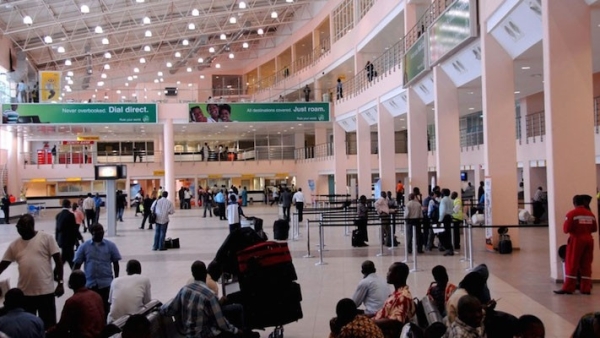Air travel can be both exciting and nerve-wracking, but understanding the dos and don’ts is essential to ensure a smooth journey.

Air travel promises exciting adventures and joyful reunions, but getting detained at the airport can quickly turn that thrill into a nightmare. Whether you’re a seasoned jet-setter or a first-time flyer, understanding what can land you in trouble with airport authorities is crucial. From seemingly harmless mistakes to serious offenses, numerous actions can lead to frustrating delays, legal consequences, and a disrupted journey.
In today’s security-conscious climate, airports enforce stringent rules and regulations to safeguard passengers and staff. While these measures are necessary, they can also lead to unintentional violations by travelers. Being aware of the dos and don’ts of air travel is essential to avoid unnecessary complications and ensure a smooth, stress-free experience. By knowing what to avoid, you can make the most of your time in the air and ensure your journey remains a memorable adventure for all the right reasons.
Here are 8 of such things that can get you detained at the airport
Prohibited items
Packing for a trip requires awareness of permitted items in your luggage. While the prohibition of illegal substances is self-evident, many travelers remain unaware of other restricted items that can lead to complications. For example, India prohibits books and maps that incorrectly depict its external boundaries, while Japan emphasizes public safety and morality by restricting certain books, drawings, and carvings. Dubai, on the other hand, enforces strict regulations on food and wildlife products. To avoid any issues, it is essential to consult the customs websites of your destination country and familiarize yourself with their specific rules and regulations before packing.
Invalid or damaged travel documents
Smooth boarding and travel depend on adhering to airline and country-specific regulations governing travel document requirements. These documents must be valid, often requiring a certain period of validity beyond the travel dates. This precaution allows flexibility in case of flight delays, enabling travelers to board alternative return flights. Before heading to the airport, thoroughly review passport and visa validity guidelines. For instance, Thailand, Nepal, and Turkey mandate at least six months of passport validity upon entry, while most European Union nations require three months, and New Zealand stipulates one month beyond the intended departure date.
Furthermore, ensure that your photo and biographical data are visible and clear. Any damage, such as rips, tears, or water damage, could disrupt your travel until replacement documents are obtained. It’s important to note that travel documents extend beyond passports; some countries necessitate supplementary documents, such as prior travel history, parental consent for minors, vaccination records, or proof of accommodation during the stay. Familiarizing yourself with these requirements is crucial to avoid any hiccups during your journey.
Prescriptions and medications
When traveling with medications, it is crucial to research the regulations of your destination country. While some medications may be permitted with a doctor’s note, others are strictly prohibited. The International Narcotics Control Board provides general guidance, but verifying the specific rules for each country on your travel route, including transit countries, is essential.
Certain medications, like Sudafed, are considered controlled substances and are banned in some countries, such as Mexico. Violating these laws can have severe consequences. To ensure a smooth journey, the Centers for Disease Control and Prevention recommends checking with the embassies of each country to confirm the permissibility of your medications. If you are taking restricted medications, especially life-sustaining, psychiatric, or psychotropic drugs, consult your doctor about alternative options or equivalent substitutions available in your destination country. This proactive approach will help you avoid potential issues and ensure your health and safety while traveling.
Large sums of cash or undeclared items
Traveling, particularly to countries like the United States, requires notifying authorities if you are carrying large sums of money or valuables exceeding a certain threshold, typically around $10,000. This includes items such as jewelry, expensive clothing, or electronics. In destinations like South Africa and Canada, completing declaration forms prior to your trip can help circumvent potential fines and delays at the airport. Adhering to these regulations ensures a hassle-free travel experience and prevents any unintended legal complications upon arrival.
Flammable and explosive materials
Carrying flammable or explosive items can severely disrupt air travel. Fireworks, including small sparklers, are strictly prohibited on airplanes due to safety concerns. Even friction during the flight can trigger their ignition, endangering passengers and crew alike. In the United States, violating these regulations can result in substantial civil penalties of up to $75,000 per offense, with potential criminal charges for those importing fireworks for commercial purposes. Regardless of your reason for traveling, it is imperative to refrain from carrying any items intended for ignition or combustion to ensure a safe and uninterrupted journey.
Unreported plants, pets or exotic animals
Moving living organisms across borders, including plants, pets, and animals, is subject to stringent regulations. The U.S. Customs and Border Protection (CBP) advises travelers to consult the Don’t Pack a Pest website for plant-related declarations. The U.S. Fish and Wildlife Service provides guidance on avoiding prohibited live animals and products. Regulations vary by airline and country; for instance, Jamaica restricts certain dog breeds. Transporting exotic animals may necessitate specialized pet transporters to ensure compliance with vaccination and quarantine measures. It is crucial to check with your airline and the embassy of your destination for the latest guidelines to ensure a smooth and lawful journey when traveling with living creatures.
Unsettled legal matters
Unresolved legal matters can derail travel plans, as airport authorities worldwide have access to databases containing information on individuals with criminal records or outstanding warrants. For instance, individuals with unpaid fines attempting to enter or leave New Zealand may face interception by police at the airport, according to the Ministry of Justice website. Similarly, in the U.S., those owing over $2,500 in child support are ineligible for a U.S. passport.
Ensuring compliance with the law before embarking on air travel is crucial. If you have pending civil or criminal issues, consulting legal counsel to confirm travel eligibility is advisable. Prioritize resolving any warrants or fines before your flight, and carry documentation of resolution to prevent potential airport complications.
Traveling while intoxicated or under the influence of drugs can also lead to significant disruptions. If ground or cabin crew suspect you have had too much to drink and pose a risk to yourself and others, it could result in delays. Keep in mind that alcohol consumption is prohibited in certain countries, and being under the influence or carrying alcohol in luggage can lead to detention or imprisonment.
References
2bbc.com ,3travelingadvise.com ,4ncesc.com
Read more: A Traveler’s Guide to the World’s Must-Visit Destinations















